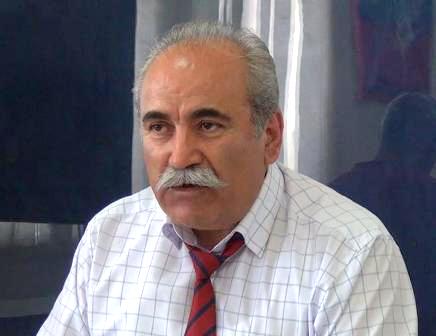 US President Biden this month has the opportunity to use honest and accurate terminology when describing the murder of over 1 million Armenians in the Ottoman Empire, the editorial of LA Times reported.
US President Biden this month has the opportunity to use honest and accurate terminology when describing the murder of over 1 million Armenians in the Ottoman Empire, the editorial of LA Times reported.
“When the anniversary of the start of the massacre arrives, he can and should call it a genocide, a term that only one president — Ronald Reagan — has previously used in that context. And even then, Reagan made the reference as an aside in a proclamation about another atrocity, the Holocaust,” LA Times noted.
According to it, it is ‘dumbfounding’ that the definition of “genocide” in the context of what happened to the Armenians is becoming a subject of debate.
“And it was bad, a crime against humanity whose pain resonates all the more through history because global governments have been slow to recognize it and some factions have intransigently refused to acknowledge the truth,” they noted.
According to the LA Times, the day of remembrance of the victims of the Armenian Genocide is celebrated annually on April 24. On this day in 1915, the authorities of the Ottoman Empire gathered hundreds of Armenian intellectuals and community leaders in what is now Istanbul. Many were hanged in the street. Although the Armenians had faced severe oppression in the Ottoman Empire before, this execution marked the beginning of a campaign of much broader and more serious attacks and forced deportations. When it was over, the number of Armenians living in Turkey dropped from 2.1 million to 389,000.
The deniers of the Armenian genocide, led by the Turkish government, argue that although Armenians, mostly Christians, did die in Turkey from violence and hunger before, during and after World War I, the same happened to Jews and Muslims. But this false equivalence revolves around the question of why they were killed. Victims of indiscriminate war are different from people persecuted on the basis of ethnicity.
“It’s factually correct that Armenians weren’t the only ones who perished in the collapse of the Ottoman Empire, but that argument denies the truth. It’s like countering the grotesque reality of the Nazis’ systematic effort to eradicate Jews — the unforgivable crime against humanity that first earned the term “genocide” — by arguing that it wasn’t so bad because other people died, too. That’s offensively absurd.
So why is whether to call the massacre of Armenians a genocide even an issue? Because the Turkish government has steadfastly refused to accept that its forebears in the Ottoman Empire committed genocide, a position unmoored from the factsand the overwhelming consensus of serious historians.
The Turkish government may cling to this delusion, but the rest of the world does not, and should not, have to indulge it. And, in fact, many governments don’t. More than two dozen have taken formal stances declaring the Armenian genocide.
The issue has proved to be particularly thorny for the United States. Turkey has long been a military ally (it’s a fellow member of NATO), and the U.S. maintains a significant military presence at the Incirlik Air Base. But relations have frayed in recent years, propelled by Turkey’s move toward better relations with Russia (which has been selling Turkey military equipment) and its attack on U.S.-backed forces in northern Syria. That broke the dam in Congress, which voted in 2019 to recognize the Armenian genocide.
But Congress is not the White House, which determines U.S. foreign policy. President Obama had a golden opportunity to fulfill a campaign promise and drop the pretense in 2015, the centenary of the start of the Armenian genocide, but stopped short despite using the Armenian term for it, meds yeghern, and stating that “beginning in 1915, the Armenian people of the Ottoman Empire were deported, massacred and marched to their deaths. Their culture and heritage in their ancient homeland were erased. Amid horrific violence that saw suffering on all sides, one and a half million Armenians perished.” The Trump administration stuck with that position, too.
That brings us to Biden, who arguably entered the Oval Office with the deepest and broadest understanding of U.S. foreign policy of any newly inaugurated president since George H.W. Bush. But he also has historically positioned himself as a moderate pragmatist. To be sure, foreign policy can be a multidimensional chess match in which the idea isn’t necessarily to win, but to make sure your opponents lose. But here, what’s important is the truth and an honest recognition of history. Biden needs to call the Armenian genocide by its name.”







